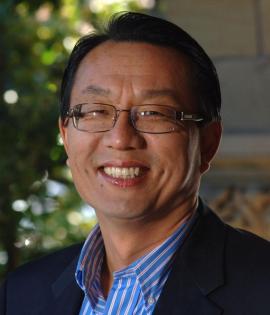|
|
Gi-Wook Shin (申起旭教授)
Stanford University
Professor of sociology and a senior fellow of the Freeman Spogli Institute for International Studies at Stanford University; & The director of the Walter H. Shorenstein Asia-Pacific Research Center at Stanford University.
美国斯坦福大学:亚洲研究中心主任、社会学教授
| 主题: | History Wars in Asia: What Can be Done? |
| 时间: | 17 October 2014, Friday, 15:00-17:00 |
| 地点: | 浙江大学紫金港校区 西3B-112(社会科学研究院会议室) Zijingang Campus, Xi 3B-112 (Academy of Social Science) |
| 承办: | 浙江大学公共管理学院政治学系 浙江大学社会科学研究院 |
| 主讲: | 申起旭 (Gi-Wook Shin) 美国斯坦福大学:亚洲研究中心主任、社会学教授 |
| 主持: | 余逊达,浙江大学公共管理学院政治学系教授、社会科学研究院院长 |
Northeast Asia is a global center of economic dynamism, propelled by a phenomenal growth in social and cultural interactions among the nations in the region. Still, wounds from past wrongs, committed during times of colonialism and war, have not yet fully healed, and the question of history has become a highly contentious diplomatic issue throughout the region. Pessimists worry that colonial and wartime history problems will persist and that there is not much we can do about. On the other hand, optimists believe that history issues will inevitably fade away over time as the wartime generation passes away and the countries of the region become increasingly integrated economically and culturally. How should we approach current history tensions in Northeast Asia?
This lecture examines the complexity of history wars in Asia in comparison with European experiences. Disregarding or ignoring an unfortunate past means not only evasion from historical accountability but also a missed opportunity to learn from history. That Germany’s failure to learn from its defeat in World War I led to the rise of Nazism and another world war should provide a valuable lesson for all, especially Japan. After reviewing past efforts and modes of historical reconciliation, Professor Shin will discuss some concrete ways of moving forward that involve not only Asian nations but also the international community.
His lecture is based on a multi-year project called “Divided Memories: Toward Historical Reconciliation in Northeast Asia” that he has led at Stanford’s Asia-Pacific Research Center since 2007.
Gi-Wook Shin (申起旭) is professor of sociology and a senior fellow of the Freeman Spogli Institute for International Studies at Stanford University (美国斯坦福大学). He has been the director of the Walter H. Shorenstein Asia-Pacific Research Center at Stanford University since 2005 and is also the founding director of its Korea Program. As a comparative and political sociologist, his research has concentrated on nationalism, development, and international relations. Shin is the author/editor of 16 books and over 50 articles. This year he has published two books Criminality, Collaboration, and Reconciliation and New Challenges for Maturing Democracies in Korea and Taiwan and many articles including one in Foreign Affairs on history wars in Asia. Shin also coauthored a policy report on North Korea entitled “Tailored Engagement.” He is currently writing a book on historical memories of the Asia-Pacific wars and his book, Global Talent: Foreign Skilled Labor as Social Capital will be published by Stanford University Press later this year. He writes monthly columns to Dong-A Daily (Korea) and Nikkei Asian Review (Japan).


